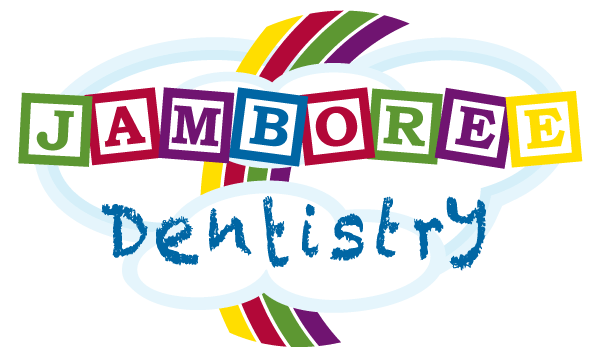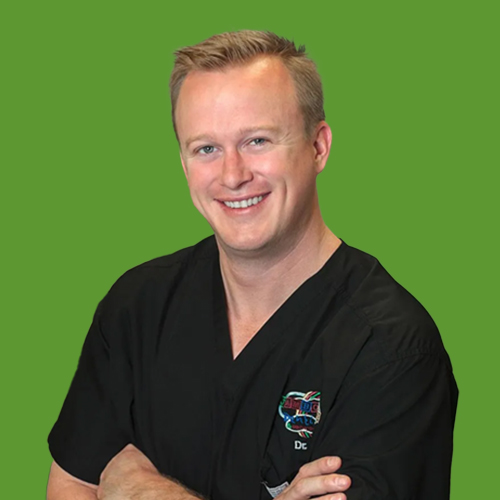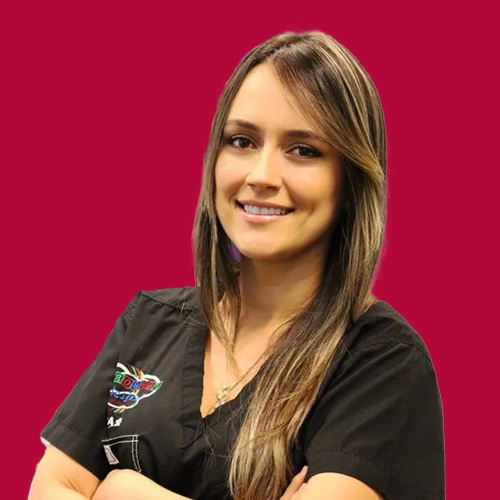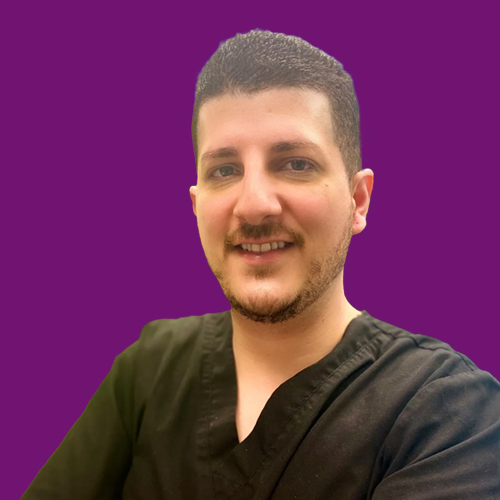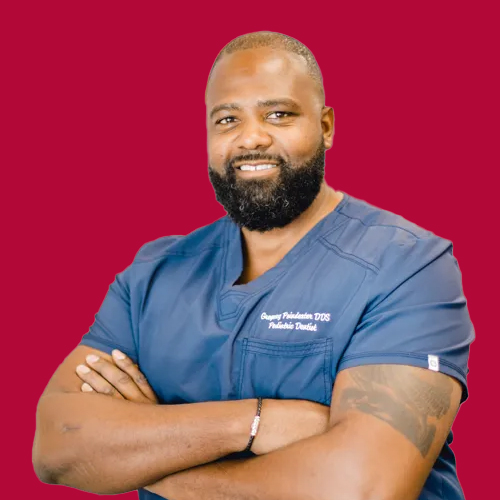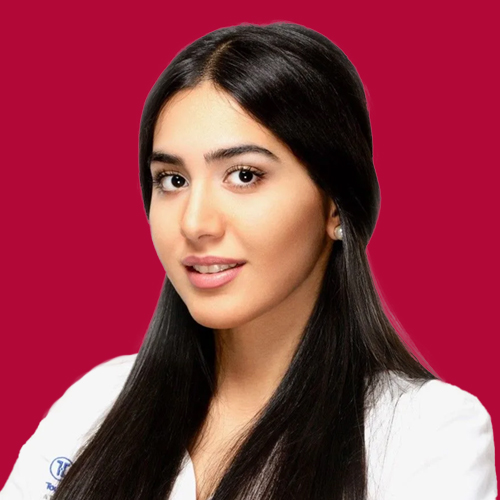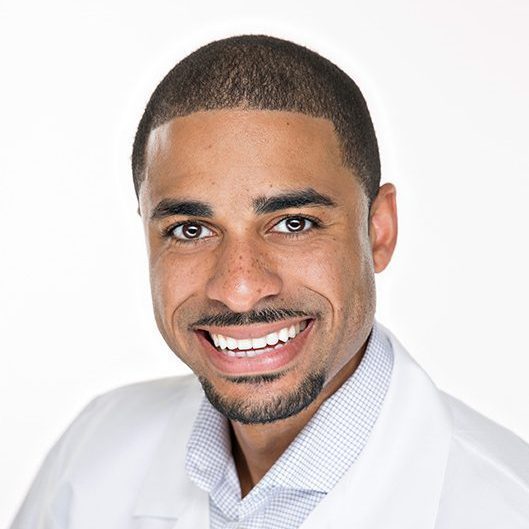Baby Dental Care
Baby Dental Care Questions
Jamboree Dentistry is a pediatric dentistry practice in Houston that provides care that meets today’s most demanding pediatric dentistry needs. Do you have questions regarding baby dental care? Browse the Jamboree Dentistry baby dental care questions here.
Yes, infants need dental checkups. As soon as teeth begin erupting, parents should begin bringing their child to dental checkups regularly. It is as important to keep an infant’s mouth as thoroughly clean as it is for adult teeth.
Prevent Baby Bottle Caries
Consuming any sugars will cause tooth decay that can affect future teeth. Sending your child to bed with a bottle of formula, milk, or juice is a primary cause of tooth decay in infants. Tooth decay in infants is often referred to as baby bottle caries.
The bacteria in baby’s mouth need food to live. If there is a constant source of sugary liquids in his or her mouth, bacteria will thrive in the child’s mouth. Acid is a by-product of bacteria breaking down sugars. The acid attacks the child’s teeth, eating into the enamel and causing decay.
Schedule Infant Oral Exams
Prevent baby bottle caries by making sure your child’s teeth are as healthy as they can be. Make sure that your child’s teeth are as healthy as they can be by scheduling regular checkups. Infant oral exams provide the most accurate risk assessment for caries.
Infant Dental Checkups with Jamboree Dentistry
Jamboree Dentistry specializes in providing infant dental checkups. We can provide you a qualified Medicaid pediatric dentist in Houston for infants. We have the knowledge and proper equipment needed to provide the right care for your child. You can contact us today for more information and to schedule an appointment.
There are many dental questions parents have about their children. A common question people have is whether or not they can bleach their baby’s teeth.
The short answer here is no. However, there are a few reasons why this is not advisable which parents should understand so they can provide the best possible care to their child.
Why Parents Consider Bleaching
There are several reasons why a parent may want to bleach their child’s teeth and it all boils down to wanting their teeth to look their best. The teeth may have milk rot, lack or proper brushing or other issues that have caused them look yellow or rotted. While this may not be the prettiest thing, it is important to realize why it is not a good idea to bleach a child’s teeth.
The Teeth are Not Fully Developed
The teeth are not fully developed until a child reaches their late teens, generally between 16 and 18. This is why most whitening products are aimed at adults and not children. Applying bleaching formulas on the teeth before they are fully formed can cause several issues, the most common of which being tooth sensitivity which the child may suffer from their entire life.
Baby Teeth Will Fall Out
While the sight of discolored baby teeth may not be appealing, parents should remember these will fall out in due time. Most children have most of their adult teeth by the time they hit puberty. Some parents choose to make the best of the situation with discolored teeth by showing their child the importance of proper dental hygiene from the time they are small. This can help to keep their teeth as white as possible when they get older.
How to Treat Discolored Teeth Without Bleach
It is never advisable to try to whiten children’s teeth at home. This should always be done in the safety of a dental office. The best thing a parent can do is to talk with the dentist about their concerns with their child’s teeth. The problem may be resolved or at least made better by a deep cleaning. However, there are some circumstances, like damaged teeth, where there will be no way to treat the problem. Parents may just have to wait for the tooth to come out on its own. At Jamboree Dentistry, we want the best treatment for your child.
Dental caries or trauma to a baby tooth has the potential to result in the infection or death of the living tissue that is inside of the tooth. Of course, this can cause a lot of pain for the child, which means the problem must be treated. For permanent, adult teeth, a root canal may be appropriate in these cases, but baby teeth don’t require root canals like adult teeth do.
However, there is a procedure called a pulpotomy, which is often referred to as a baby tooth root canal, that can be used to help preserve primary teeth in children.
What is a Pulpotomy?
A pulpotomy involves removing the top of the infected pulp or nerve tissue within the tooth. However, unlike a normal root canal, the healthy nerve tissue in the root of the tooth is left alone. A special medication is then put on the top part of the baby tooth, helping the tooth to heal over time. However, after the pulpotomy, a child will need to have a crown placed on top of the tooth to keep it covered. This keeps bacteria from getting down into the nerve.
Repair Baby Teeth if Possible
In some cases, a baby tooth that is severely affected must be pulled. However, it’s better to repair the tooth if possible with a pulpotomy. Removing baby teeth can result in a bad bite for the child.
The primary teeth are important for guiding in the new permanent tooth, and losing a tooth too early could cause problems as the permanent teeth begin to come in. Having a baby tooth root canal, or pulpotomy, not only helps keep the proper spacing for the permanent teeth, it also helps to ensure that the gum and bone tissue is supported.
Whenever possible, a pulpotomy offers a much better choice than removing the tooth. This treatment helps children to retain full function of their tongue, jaws, and teeth, which ensures that permanent teeth are guided into their proper place and children are less likely to deal with speech problems.
Losing that first baby tooth is one of the signs a child is growing up, and it’s an important milestone for many kids. Kids often become competitive about who has lost their first teeth and how many teeth they have lost. As the roots of baby teeth dissolve, the baby teeth loosen to prepare the way for the permanent teeth to come in. In most cases, it’s the two bottom front teeth that usually go first, closely followed by the top front teeth. Many parents find themselves wondering when their child will start losing their baby teeth. Here’s an in-depth look via Jamboree Dentistry at the answer to that question.
When the First Teeth Loosen
In most cases, kids are around six years old when that first baby tooth becomes loose. However, some children may lose their first tooth at a younger age while other children may not lose a tooth for a couple more years. If your child has a stubborn loose tooth that doesn’t want to come out or your child hasn’t lost any teeth by the time he is eight, it’s a good idea to talk to the child’s dentist. Your child’s dentist can take x-rays to take a closer look at the adult teeth beneath the surface. In fact, x-rays can help determine when a child will begin losing his teeth.
Should Your Child Wiggle That Tooth?
While you don’t want your child to yank out a tooth once it does become loose, it’s fine to let your child wiggle the tooth gently. If the tooth refuses to come out of your child’s mouth, you may need to have it pulled by a dentist, although this is rarely necessary.
New Teeth Start Coming In
Once your child loses his first baby tooth, you can start to look for the new teeth that will be coming in. In most cases, the new teeth aren’t that painful when they come in. However, if your child does deal with some pain when the new tooth begins to come in, acetaminophen, ibuprofen, or a topical painkiller can take care of the pain. You may notice that the adult tooth looks larger, which they are. The new teeth may also have ridges on them, since they haven’t yet been used for chewing and biting.
Generally, babies begin getting their first teeth when they are around six months old. Before your baby even has teeth, keeping his gums clean and healthy is important. However, once your baby does have teeth, you need to focus on keeping his teeth clean too. What should you use to clean your baby’s new teeth? Here’s a closer look at some helpful Houston pediatric dentistry information.
Choosing a Baby Toothbrush
Once that first tooth appears, it’s a good idea to choose a baby toothbrush to clean your baby’s teeth. When choosing a toothbrush, make sure you choose one that is specifically designed for babies. It should have a little head that will easily fit in your baby’s mouth. Look for soft bristles and a large handle that’s easy for you to hang on to and manipulate. You should also check the package of the toothbrush to make sure it’s specifically designed for your baby’s age range.
Brushing with the Toothbrush
When you first start brushing your baby’s teeth, it’s a good idea to simply wet the toothbrush, especially if your baby is very young. Eventually you can begin using just a dot of toothpaste about the size of a single grain of rice on the toothbrush, but you want to avoid using too much. It may be a good idea to choose toothpaste that is specifically designed for babies. You should brush your baby’s teeth at least once a day at bedtime, but it’s even better to get in the habit of cleaning twice daily. This will help your baby build an important habit that will carry on as he grows older.
How to Brush
Make sure you brush your baby’s teeth, gums, and tongue very gently. You want to avoid irritating the gums. When brushing the teeth, brush on the inside and outside of the teeth to eliminate bacteria. Brushing the tongue is important as well, since it will help dislodge any bacteria that could cause bad breath. Since you’re only using a tiny amount of toothpaste, you don’t need to worry about rinsing your baby’s mouth.
Replacing the Toothbrush
It’s important to replace the toothbrush regularly. Be sure to replace it every one to three months. However, if you notice that the bristles are spreading out, it is time to change the toothbrush for a new
Taking care of your child’s oral health is very important, and good oral health starts when your baby is very young. The first dental visit is very important, but many parents wonder when they should take their baby to the dentist for that first checkup. Here’s a closer look at when your child should have that first appointment, as well as a look at what you can expect at that first checkup.
When Should the First Dental Visit Take Place?
Preventing is an important part of dental care, so it’s best to make sure your child sees a pediatric dentist around six months of age. Definitely make sure your child has had that first checkup before the first birthday rolls around Even if your baby hasn’t developed any teeth yet, it’s still important to see a dentist to get your baby’s oral health off to a good start.
What to Expect at the First Visit
The first dental checkup is generally short, and it doesn’t usually involve much treatment. At the first appointment, your child will have the chance to meet the pediatric dentist in a friendly, non-threatening way. You may be asked to hold your child throughout the exam. If your child has teeth, the dentist will check those teeth, looking for any potential oral problems. The first checkup will also include education for you on your child’s oral health care needs, and your dentist will be able to answer any questions you may have.
Topics to Discuss at the First Appointment
During the checkup, many topics may be discussed. Some of the common topics the dentist may discuss with you include:
- Your child’s fluoride needs
- Basic oral hygiene practices for your baby’s gums and teeth to prevent cavities
- Teething
- Future schedule of dental visits
- Oral habits of your child
- Proper nutrition
The Benefits of a Pediatric Dentist
When your child has that first appointment, make sure you take him to a pediatric dentist. Pediatric dentists have additional training specific to the treatment and management of child behavior, a child’s teeth, special needs of children, and a child’s physical development and growth. Quality pediatric dentistry in Houston or anywhere else will ensure that the office décor, your child’s care, and even the staff members are geared to caring specifically for children.
As soon as teeth begin to grow, children should have their teeth brushed at least twice a day until they are old enough to hold the brush, usually by age 2 or 3. As toddlers, children may begin brushing their own teeth with supervision and help to reach all of their teeth, rinse, and spit. Usually, by age 6, children are ready to begin brushing their teeth on their own.
Baby Teeth Need Thorough Care
Even before teeth begin sprouting, an infant’s gums should be wiped gently with a moist and soft cloth or a gauze square in order to help clean bacteria in the mouth. Infant gums, like teeth, should be wiped at least twice a day.
At the first sign of teeth erupting, a child’s toothbrush should be used with a small dab of toothpaste. Children’s hands and mouths are different than adults. They need to use toothbrushes designed for children in order to effectively clean their teeth.
Maintain a Lifetime of Healthy Teeth
Children who maintain good oral health habits throughout their childhood are more likely to continue brushing and flossing than children who were not taught proper oral care. Lifelong cavity prevention consists of consistent brushing, flossing, and rinsing.
Encouraging proper brushing and flossing at home, along with regular dental visits and a balanced diet, will help give your child a lifetime of good dental health. Contact us today for a knowledgeable and friendly pediatric dentist accepting Medicaid. Jamboree Dentistry has the tools you need to keep your child’s teeth clean and healthy.
Every child begins to grow their teeth at a unique time, and once those first teeth begin arriving, it’s important to start brushing them with an appropriately sized, soft brush. However, as more teeth arrive and begin growing closing together, it’s time to think about flossing.
Once a child has baby teeth that are touching, it’s time to begin flossing between them to prevent food from getting stuck between those teeth.
Teach Children With Their Primary Teeth
Teaching children to floss as soon as they have primary teeth that touch together will start a good habit while they are young. However, since young children may not have very advanced motor skills, parents will need to help their children with flossing. Taking the time to help them floss their teeth each day until they are able to do it alone will help them develop a healthy habit that will last a lifetime, preventing many dental problems.
Sometimes it’s difficult to teach a small child how to floss, since it’s a foreign concept to them. You’ll need to be patient with your child. Follow these important steps to ensure your child learns to floss his teeth properly:
- Begin with a strand of floss that is 12-18 inches long
- Tie the ends in a knot with a loop that their little fingers are able to fit in, wrapping the floss around the fingers gently until just an inch of the floss is left between the fingers
- Have your child begin to slowly, gently slide floss between the teeth, moving slowly back and forth while keeping a good grip on the floss
If the floss touches your child’s gums, the gums may begin bleeding, which is normal. While it may startle your child, you can let them know that this will go away as they keep flossing. Children have tender gums, but after several days of flossing, the gums will toughen enough to be able to handling flossing without a problem.
Of course, if you have any questions about when it’s time to floss or how to help your child floss properly, you can always talk to your child’s dentist for more information.
Contact Jamboree Dentistry at our north Houston or our south Houston office for more questions. We’re a pediatric dentist accepting Medicaid, and we serve the Greater Houston area.
There are many things parents need to understand about their child’s overall health, including oral health. One of the questions many parents wonder is why baby teeth, also referred to as primary teeth, are important to their child. The truth is there are many reasons these teeth are needed for a child’s development and future oral health.
Help Learn to Speak
One of the biggest milestones of early childhood is learning to speak and teeth help fill in this capacity. Teeth help keep the tongue in place and make it easier to enunciate words. The importance of teeth in proper speech is evident in people who take out their dentures and have a conversation. So if it can interrupt the proper speech of a person who has been speaking for decades, it can have an even greater impact on a child who is learning the art of speaking.
Aids in Chewing
Another thing young children must learn to do is to eat on their own. When there are no teeth children are very limited in the things they can eat. Or they are at least limited in the preparation method. Having primary teeth allows children the ability to chew their food naturally so it does not have be mashed, ground or treated in other ways to make it easier to eat. This helps children adjust to eating regular food and can also help to foster a sense of independence.
Helps with Adult Teeth
The other important reason for baby teeth is that they help form the pathways for adult teeth to make their way to your child’s mouth, also known as erupting. This means without baby teeth the chance of a child’s teeth coming in correctly would be low. There is no denying that teeth are an important part of life, especially the adult teeth and without having the proper pathways they may never make it through.
If nothing else, baby teeth are important for cosmetic reasons. Baby teeth are appropriately sized for their mouth which is what helps make toddlers look adorable. To provide a child with the best oral care one of the things parents need to do is see the best pediatric dentists in their area. At Jamboree Dentistry, parents find that their children’s teeth are not only well cared for but that children love going there because of the caring staff and gentle care they receive.
Many children develop routine nighttime nursing or bottle-feeding habits. While a child may fall asleep more easily with the comfort of a bottle, this type of behavior could be damaging to his or her oral health. According to the American Dental Association (ADA), nursing or giving a bottle to a child on-demand and without restriction can lead to a higher risk of childhood tooth decay once a baby’s first tooth appears.
Here at Jamboree Dentistry, we have seen first-hand the effects of baby bottle decay on young children. That is why we recommend that parents be proactive in the steps they take to prevent early childhood cavities.
Nighttime Nursing and Bottle Habits
To start, avoid letting your child drink any liquid other than water from a bottle or sippy cup at night while falling asleep. Prolonged exposure to the sugary compounds in milk can cause tooth decay over time. Instead, nurse or provide your child with a bottle of milk prior to bedtime. Keep sugary liquids like juice to a minimum, and only give them in small, restricted quantities.
If necessary, a pacifier should be used in place of a bottle for nighttime or naptime comfort. Ensure that the pacifier is clean and germ-free. Do not ‘rinse’ the pacifier with saliva from your own mouth, as this introduces harmful bacteria to your child’s teeth and gums. Also, never dip your child’s pacifier in sugar-based products like juice or honey.
Proper Care of Teeth and Gums
Keep in mind that it is never too early to begin a preventative oral hygiene routine with your child. Even though a child’s first teeth are only temporary, they play a very important role in long-term oral health. If possible, wipe your child’s gums with a soft gauze pad and gently clean any visible teeth with a child-size toothbrush between feedings. This is especially important before bedtime.
Regular Dental Visits
Regular dental visits are essential for establishing a foundation for healthy oral habits. It is important that you take your child to a pediatric dentist for periodic exams and preventive treatments. Early childhood visits are highly informational and typically include oral health education that is personalized to your child’s development. If you have questions about proper brushing technique or whether your child can benefit from a fluoride-based toothpaste, your child’s pediatric dentist can help with that too.
The ADA recommends scheduling your child’s first dental appointment within six months of the first tooth eruption, but no later than your child’s first birthday. To schedule your child’s pediatric dental visit, contact our office to speak with one of our helpful appointment coordinators.
There are many things parents need to keep in mind concerning their child’s oral health. One of the biggest questions about this is when is the right time to start brushing their child’s teeth. There are a few things parents should know about this.
Starting at Birth
Before a child even gets teeth, parents can start teaching them about oral hygiene. At this point parents can use a baby toothbrush which goes on the tip of the finger and a little water. If this is not available or the baby seems to not like it, then parents can always use a washcloth and water instead. This will help control bacteria in the mouth.
Once Teeth are Present
For babies and toddlers with teeth, parents need to brush the teeth and gums twice a day using an age-appropriate toothbrush and a small smear of age-appropriate toothpaste. While brushing the child’s teeth, it is helpful to explain to them what you are doing and why it is important. Being diligent about this in early childhood can help improve their oral hygiene later in life.
For Children Ages 3 to 6
At this point, children can use about a pea-sized amount of toothpaste as they have more teeth to clean. While they should still be using an age-appropriate toothbrush, parents should remember that children do not have the dexterity or comprehension to clean their teeth fully on their own. This is why it is good to watch your children and guide them as well as help them with the process. Some parents will do a follow-up brushing to ensure they got everything, while others may opt to brush the teeth first and then let the child do it themselves.
Ages 6 and Up
At this point children should be able to brush their teeth on their own. Parents may want to watch to make sure it is being done properly. It can also be helpful to talk with the dentist about brushing habits and the best type of toothbrush for the child. The dentist can give your child pointers and help ensure you are doing all you can to keep their teeth healthy.
Baby bottle caries are cavities caused by long-term exposure to liquids that contain sugar. Sending your child to bed with a bottle of formula, milk, or juice is a primary cause of tooth decay in infants and young children. Using a bottle as a pacifier to soothe a child can also lead to caries.
What causes tooth decay in infants?
Bacteria cause tooth decay, but babies are not born with bacteria in their mouths. Bacteria are introduced by a primary caregiver who passes on his or her saliva to the child. For example, if a mother shares a spoon with her baby, she can unknowingly pass cavity-causing bacteria on to her child.
The bacteria in baby’s mouth need food to live. If there is a constant source of sugary liquids in his or her mouth, bacteria will thrive in the child’s mouth. Acid is a byproduct of bacteria breaking down sugars. The acid attacks the child’s teeth, eating into the enamel and causing decay.
Where do baby bottle caries occur?
While they can happen anywhere, baby bottle caries most often occur in the front upper teeth.
How can you prevent baby bottle caries?
Here’s ways you can prevent baby bottle caries.
- Don’t share eating utensils with your baby, and certainly don’t clean a pacifier with your mouth. Wipe your child’s gums with a clean damp cloth after each feeding.
- After you child get his or her baby teeth, brush them with a child-size toothbrush and a rice-sized amount of fluoride toothpaste until the age of 3.
- Between the ages of 3 and 6, use a pea-sized amount of fluoride toothpaste to clean your child’s teeth.
- Be certain to monitor your child’s brushing until you’re certain he or she won’t swallow toothpaste. This is usually around age 7.
- Only use formula, milk, or breast milk in bottles. Don’t give your child a bottle filled with sugar water, juice, sports drinks, or soft drinks.
- Don’t send infants to bed with a bottle. Let them finish the bottle before putting them down for a nap.
- Don’t dip your child’s pacifier in sugar or honey.
- Let your child practice drinking from a cup so he or she will be done with bottles by the age of 1.
- Make sure your child’s teeth are as healthy as they can be by scheduling regular checkups.
Preventing children from developing tooth decay is vital to lifelong dental health. While tooth decay can be treated if caught in time, it’s preferable to prevent tooth decay from taking hold within a child’s mouth in the first place. There are some simple things parents can do to prevent children from getting tooth decay and the ensuing dental problems that can arise.
Brushing before bedtime is vital.
Tooth decay develops as a result of sugars and other food products in the mouth combining with the naturally occurring bacteria. This causes acid to form, which can attack the surface of the teeth and damage the enamel. If tooth decay is allowed to sit in the mouth without being treated, it can cause more serious problems like cavities and gum disease.
Often, a lack of brushing and proper oral hygiene is the main reason for tooth decay forming. Proper brushing and flossing are usually enough to remove the acids from the mouth before they can do prolonged damage and stop the formation of tooth decay. Brushing before going to sleep is especially vital, as the acids in the mouth will attack the surface of the teeth and gums all night if they aren’t removed at bedtime.
Visit the dentist as early as possible.
One of the most important things parents can do is teach children good dental habits and the importance of visiting the dentist from a young age. Parents should take their children to the dentist for regular visits, beginning when the first tooth erupts from the gum line.
Starting these visits early will help children understand the importance of regular dental checkups and can also prevent fear of the dentist when the child becomes an adult. Starting visits to the dentist early will enable the dentist to check on the tooth’s position and development, and ensure there are no signs of early tooth decay.
Once the exam is complete, the dentist can recommend a specific program of brushing, flossing, and other treatments for parents to teach to their children at home. Encouraging proper brushing and flossing at home, along with regular dental visits and a balanced diet, will help give your child a lifetime of good dental health.
Meet Our Doctors
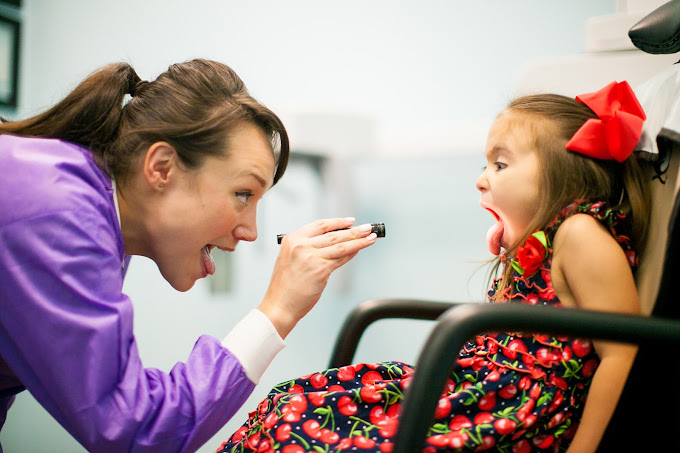
We Love Hearing From Our Patients
Testimonials
Positive Feedback & Testimonials
5 Amazing Locations in Houston, TX
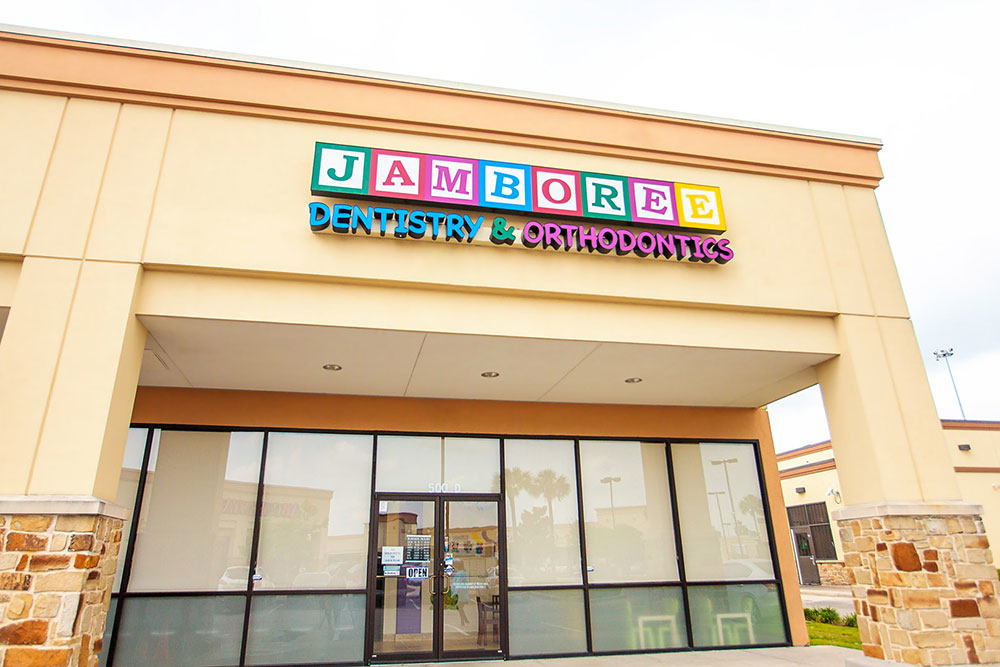
North Freeway Office
Phone
Address
Hours
- Mon-Thurs: 9 AM - 6 PM Fri-Sat: 9 AM - 3 PM
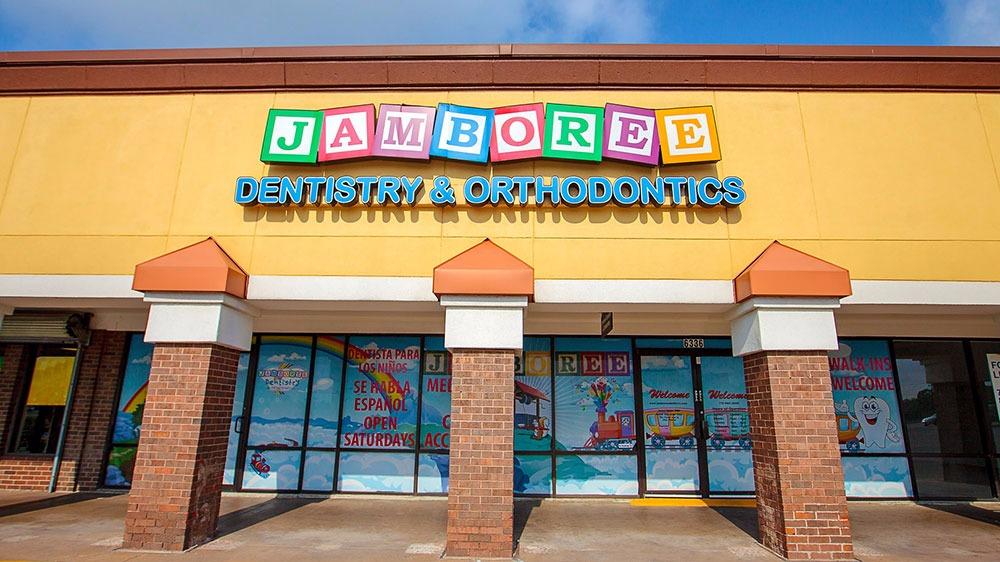
Telephone Rd Office
Phone
Address
Hours
- Mon-Thurs: 9 AM - 6 PM Fri-Sat: 9 AM - 3 PM

Willow Chase Office
Phone
Address
Hours
- Mon-Thurs: 9 AM - 6 PM Fri-Sat: 9 AM - 3 PM

FM 1960 Office
Phone
Address
Hours
- Mon-Thurs: 9 AM - 6 PM Fri-Sat: 9 AM - 3 PM
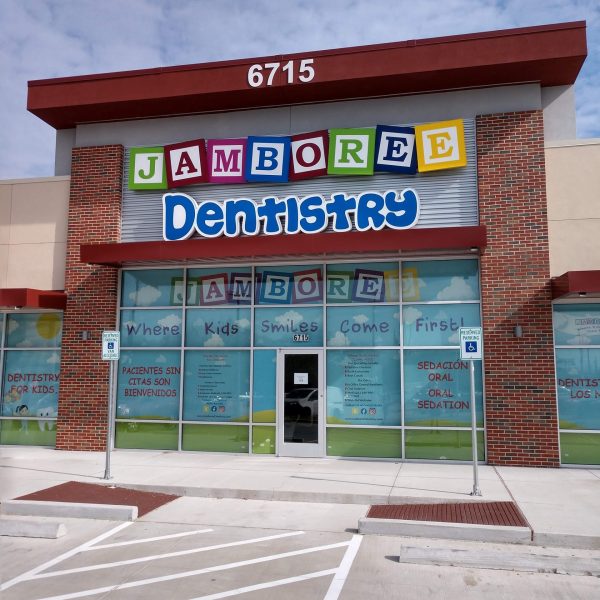
Bissonnet Office
Phone
Address
Hours
- Mon-Thurs: 9 AM - 6 PM Fri-Sat: 9 AM - 3 PM
